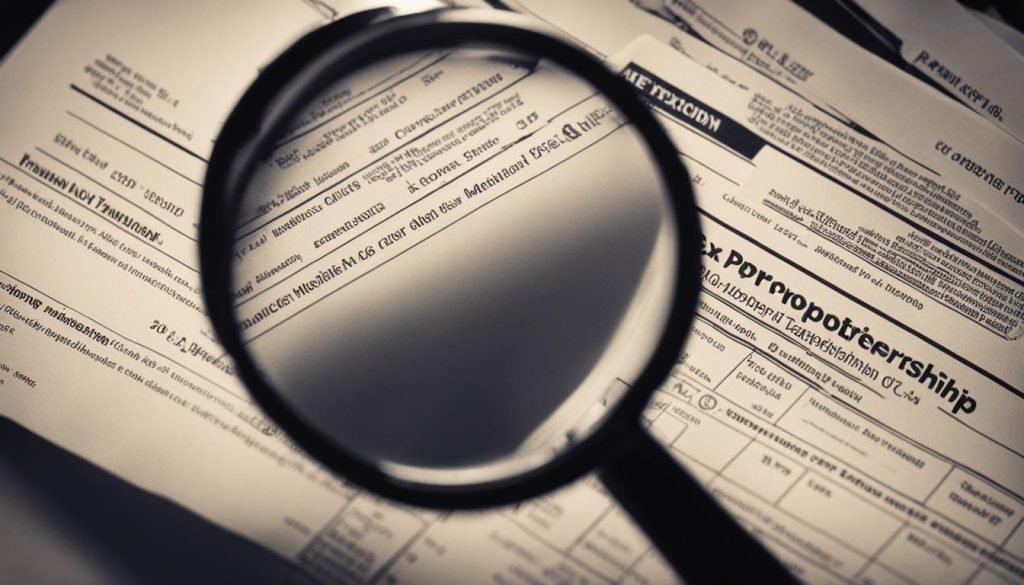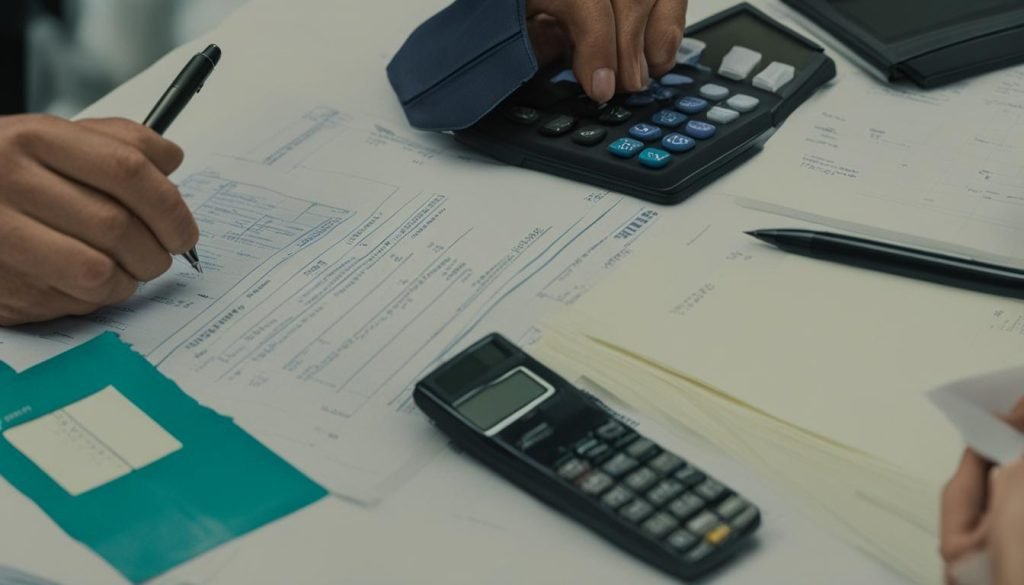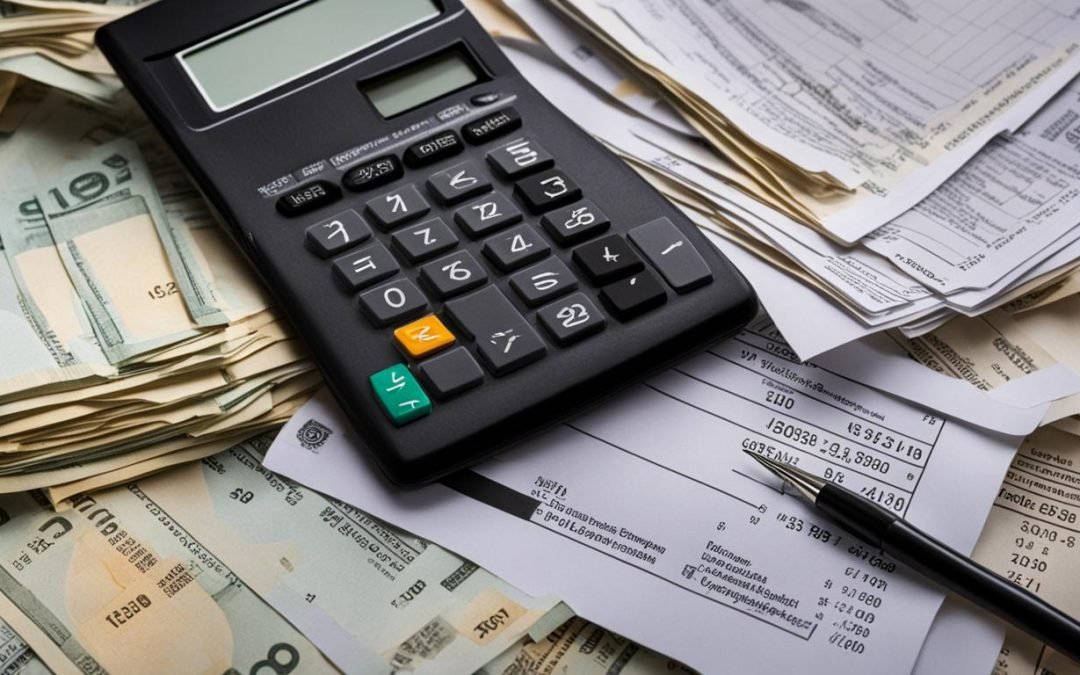If you’re a sole proprietor in Singapore, understanding the nuances of sole proprietorship taxation is crucial for maintaining compliance with the Inland Revenue Authority of Singapore (IRAS). This simplified tax guide will delve into the essentials of Singapore sole proprietor taxes, from the basics of business income taxation to navigating tax benefits and deductions. Additionally, our services at VOffice can support sole proprietors by offering virtual office solutions starting at just $4.75/month, providing a professional business address for registration in Singapore.
Key Takeaways
- Sole proprietors must report income as business income, not as salary, and are taxed at individual income tax rates.
- Proper record-keeping and accurate accounting are crucial for tax filings and potential deductions.
- Understanding tax obligations is vital for maintaining compliance with the Inland Revenue Authority of Singapore (IRAS).
- Sole proprietorship tax benefits can help reduce taxable income and maximize returns.
- Our services at VOffice offer virtual office solutions starting at $4.75/month, providing a professional business address for registration in Singapore.
What is Sole Proprietorship Taxation?
Sole proprietorship taxation involves reporting earnings from business operations as part of personal income and is subjected to individual income tax rates. This unique feature of sole proprietorship tax rules differentiates it from other business structures, making it essential for those considering establishing a sole proprietorship to have a clear understanding of the implications.

Registration with the Accounting and Corporate Regulatory Authority (ACRA) is indicative of self-employed status. The income earned from a variety of trades, businesses, vocation, or professions—including freelancers and gig workers—is considered taxable when carried out in an organized manner. This means that sole proprietorship taxation applies to a wide range of income earners, not just those operating traditional businesses.
In the United States, the IRS sole proprietorship tax requirements are quite similar, with income reported on an individual’s tax return using Schedule C. Understanding business structure taxation is essential both locally in Singapore and internationally for those operating businesses across borders or considering expansion.
It is essential for sole proprietors to know when to file their taxes according to the Inland Revenue Authority of Singapore (IRAS), especially since income earned is taxed in the following year.
Given the nature of sole proprietorship taxation, it is crucial for business owners to consider several factors, such as:
- Proper record-keeping for income and expense tracking.
- Understanding tax requirements and deadlines.
- Seeking professional assistance for complex tax situations or cross-border operations.
By developing a comprehensive understanding of sole proprietorship tax rules and compliance requirements, you’ll be better equipped to manage your business finances effectively and maintain accurate records, ultimately leading to a more successful business operation.
Decoding the Basics of Sole Proprietorship Tax Rules
Sole proprietors in Singapore must identify and comply with tax obligations by declaring income earned from their business operations. An understanding of the taxability of the income, determining the period for which business income is reported, and adhering to the requirements of both ACRA and IRAS are fundamental to staying compliant. This section aims to guide you through the foundations of tax obligations for sole proprietors, the accounting period, and the essentials of tax forms.
Identifying Your Tax Obligations as a Sole Proprietor
As a sole proprietor, you are responsible for accurately reporting your Singaporean business income. Income earned through various trades, business activities, vocations, or professions are considered taxable. It is vital to comprehend the tax laws and regulations, as well as the deadlines for filing taxes with IRAS.
Be aware of your tax obligations as a sole proprietor and maintain your compliance with both ACRA and IRAS requirements.
Deciding On and Understanding Your Accounting Period
An important step in financial reporting for sole proprietors is deciding on an accounting period—a 12-month trade period typically used to calculate profits or losses. Although most businesses align their accounting period to end on December 31st each year, there is flexibility to choose other end dates. Identifying the ideal end date for your accounting period enables you to diligently plan your business activities and tax filing periods.
- Choose a 12-month trade period for financial reporting.
- Consider aligning the accounting period with the end of the calendar year.
- Be aware of the flexibility provided by IRAS in choosing alternative end dates.
Navigating Through the Essentials of Tax Forms for Sole Proprietors
In order to ensure IRAS compliance and accurate income reporting, Singaporean sole proprietors must be familiar with the complex tax forms associated with their business. This requires them to understand:
- Statement of accounts
- Preparation of a 2-line or 4-line statement based on revenue
- The process of filing income tax, including e-filing options through myTax Portal
Sole proprietors with higher income levels must utilize a 4-line statement. This statement details revenue, gross profit/loss, allowable business expenses, and adjusted profit/loss. Becoming adept with these tax forms is crucial for minimizing tax liabilities and ensuring your business remains compliant with Singapore’s tax regulations.
Maximizing Sole Proprietor Tax Benefits
When it comes to sole proprietorship tax benefits, business owners have a range of advantages that can substantially lower their taxable income. These benefits stem from the simplicity of reporting income and the various deductible business expenses available to sole proprietors. By harnessing these deductions, business owners can enjoy the subsequent tax advantages, focusing more on growing their business.

- Home office expenses
- Vehicle expenses
- Health insurance premiums
“By intelligently leveraging deductible business expenses, sole proprietors can save a significant amount on income taxes, ultimately improving their bottom line.”
However, to make the most of these deductions, it’s crucial to maintain comprehensive records of these expenses and ensure they meet the eligibility requirements outlined by the Inland Revenue Authority of Singapore (IRAS). Keeping accurate and up-to-date financial records cannot be overstated, as it enables business owners to maximize their deductions and ensures seamless tax reporting.
Some tips to help sole proprietors maximize their tax benefits include:
- Stay informed of the latest tax regulations and deductions – Regularly researching changes to tax laws and the available deductions can help business owners identify new opportunities for tax savings.
- Keep a comprehensive record of all business expenses – Accurate record-keeping makes it easier to claim eligible deductions and streamline tax filings.
- Utilize professional tax advice and services – Working with knowledgeable tax professionals can provide valuable insights and ensure full compliance with tax regulations.
By understanding and utilizing the available sole proprietorship tax benefits, business owners can work toward maximizing their tax advantages and enjoying a more prosperous business. Accurate record-keeping, staying up-to-date with tax rules, and leveraging the assistance of tax professionals can further help ensure compliance with local tax regulations.
Navigating Self-Employment Taxes for Sole Proprietors
Understanding the intricacies of self-employment taxes is crucial for sole proprietors in order to maintain compliance and maximize potential deductions. In Singapore, these taxes encompass the contributions towards Social Security and Medicare programs, with a flat rate of 15.3% applicable to both the employee and employer portion.

Calculating and Reporting Self-Employment Income
Proper calculation and reporting of self-employment income ensure the correct amount of taxes is paid and enable sole proprietors to capitalize on possible deductions. To effectively navigate this process, keep the following steps in mind:
- Determine your net profit or loss by subtracting your business expenses from your total revenue. This will form the basis for calculating your self-employment taxes.
- Multiply your net profit by 92.35% (since only a portion of the income is subject to self-employment tax) to arrive at the amount subject to Social Security and Medicare taxes.
- Apply the 15.3% self-employment tax rate to the calculated figure to arrive at the total tax liability.
- Report this amount on your personal tax return forms and make the necessary payment within the IRAS-specified deadline.
Remember, timely and accurate reporting of self-employment income aids in adhering to tax laws and avoiding potential penalties.
Throughout the tax filing process, maintain up-to-date and organized records of all relevant financial transactions. These records will not only simplify the tax calculation process but also ensure smooth audits and accurate payment of taxes. In addition, being diligent in this area increases the likelihood of benefiting from tax deductions and reducing your overall tax liability.
Tax Deductions: Reducing Your Taxable Income Effectively
Sole proprietors can effectively reduce their taxable income by claiming allowable expenses. Precise record-keeping is essential to qualify for these deductions. In this section, we will delve into the different types of tax deductions for sole proprietors that can help in lowering taxable income, leading to potential savings and a more efficient tax planning strategy.

- Travelling expenses for business
- Monthly entertainment expenses
- Remuneration for staff
- Telephone charges
It is crucial to remember that the expenses that you claim must be exclusively incurred in the course of generating your business income. A transparent and diligent record-keeping process is essential to qualify for these deductions.
Pro Tip: Consider using financial management software or hiring an accounting professional to help you keep track of your expenses and revenue. This not only improves accuracy but also ensures adherence to the applicable tax guidelines.
“The hardest thing in the world to understand is the income tax.” – Albert Einstein
It is crucial for sole proprietors to understand and keep updated with the rules and regulations surrounding business expense claims set forth by the Inland Revenue Authority of Singapore (IRAS). Failure to comply with these regulations may result in penalties, fines, or even criminal prosecution. Therefore, regularly check the IRAS website for any updates and consult with a tax professional to ensure that you are prepared to meet your tax obligations as a sole proprietor.
An In-Depth Look at Sole Proprietorship Tax Rates
When it comes to sole proprietorship tax rates, understanding the income tax brackets and the resulting tax liability for sole proprietors is crucial. As a sole proprietor, your business income is reported on your personal tax return, subjecting it to individual income tax rates in Singapore. This means that sole proprietorship tax rates depend on the amount of business income earned, which varies for each individual.
Here, we provide an in-depth look at the income tax brackets that apply to sole proprietors in Singapore. This knowledge will enable you to accurately predict, plan, and pay the correct amount of taxes due on your business income.
“The more you understand about taxes applicable to sole proprietors, the better equipped you will be to pay the right amount and avoid any penalties.”
To better comprehend how your business income will be taxed in Singapore, consider the following income tax brackets:
- For the first $20,000 of income, the tax rate is 0%.
- For income between $20,001 and $30,000, the tax rate is 2%.
- For income between $30,001 and $40,000, the tax rate is 3.5%.
- For income between $40,001 and $80,000, the tax rate is 7%.
- For income between $80,001 and $120,000, the tax rate is 11.5%.
- For income between $120,001 and $160,000, the tax rate is 15%.
- For income between $160,001 and $200,000, the tax rate is 18%.
- For income between $200,001 and $240,000, the tax rate is 19%.
- For income between $240,001 and $280,000, the tax rate is 19.5%.
- For income between $280,001 and $320,000, the tax rate is 20%.
- For income above $320,000, the tax rate is 22%.
It’s essential to be mindful of these income tax brackets and your respective tax liability as a sole proprietor in Singapore. Proper tax planning and compliance can save you from potentially costly oversights while maximizing your available deductions.
Conclusion
In conclusion, simplifying sole proprietorship taxation is crucial for business owners operating in Singapore. Proper understanding and navigation of the tax system not only ensure compliance with the Inland Revenue Authority of Singapore (IRAS) but also enable sole proprietors to maximize available tax benefits. Accurate accounting, diligent record-keeping, and staying informed of tax obligations are essential aspects that can streamline the tax process for sole proprietors.
As a sole proprietor, tax compliance is of utmost importance, given that the business income is reported on the proprietor’s tax return and subjected to individual income tax rates. Being aware of the tax brackets and the corresponding tax rates is crucial in forecasting, planning, and paying the correct amount of taxes when filing your tax returns.
To support your sole proprietorship venture in Singapore, our services at VOffice offer convenient and affordable virtual office solutions starting at just $4.75/month. With a professional business address, you can ensure proper registration and operation of your sole proprietorship, allowing you to focus on running your business seamlessly while staying in compliance with tax regulations.
FAQ
What is sole proprietorship taxation?
Sole proprietorship taxation refers to reporting earnings from a sole proprietor’s business operations as part of their personal income which is subject to individual income tax rates. Sole proprietors must register with the Accounting and Corporate Regulatory Authority (ACRA) to be considered self-employed.
What are the tax obligations for a sole proprietor in Singapore?
Sole proprietors in Singapore must identify and comply with tax obligations by declaring income earned from their business operations. This includes understanding the taxability of the income, determining the accounting period for which business income is reported, and adhering to the requirements of both ACRA and the Inland Revenue Authority of Singapore (IRAS).
How do I maximize sole proprietor tax benefits?
Sole proprietors can maximize tax benefits by taking advantage of various deductible business expenses, including home office costs, vehicle expenses, and staff remuneration. Precise record-keeping is essential to claim these deductions and reduce taxable income effectively.
How do I calculate and report self-employment income for sole proprietor taxes?
Sole proprietors are subject to self-employment taxes, which include Social Security and Medicare taxes. In Singapore, the self-employment tax rate is 15.3%. Proper calculation and reporting of self-employment income are essential to ensure accurate tax payment and potential deductions.
What are the tax deductions for sole proprietors in Singapore?
Tax deductions for sole proprietors in Singapore include allowable expenses such as traveling costs for business, monthly entertainment expenses, remuneration for staff, and telephone charges. Accurate record-keeping is crucial to qualify for these deductions.
How can I better understand sole proprietorship tax rates in Singapore?
Sole proprietorship tax rates are based on personal income tax brackets, as business income is reported on the proprietor’s tax return. These rates vary depending on the amount of business income earned and are subject to standard individual income tax rates in Singapore. Understanding these rates can help in predicting, planning, and paying the correct amount of taxes due.

